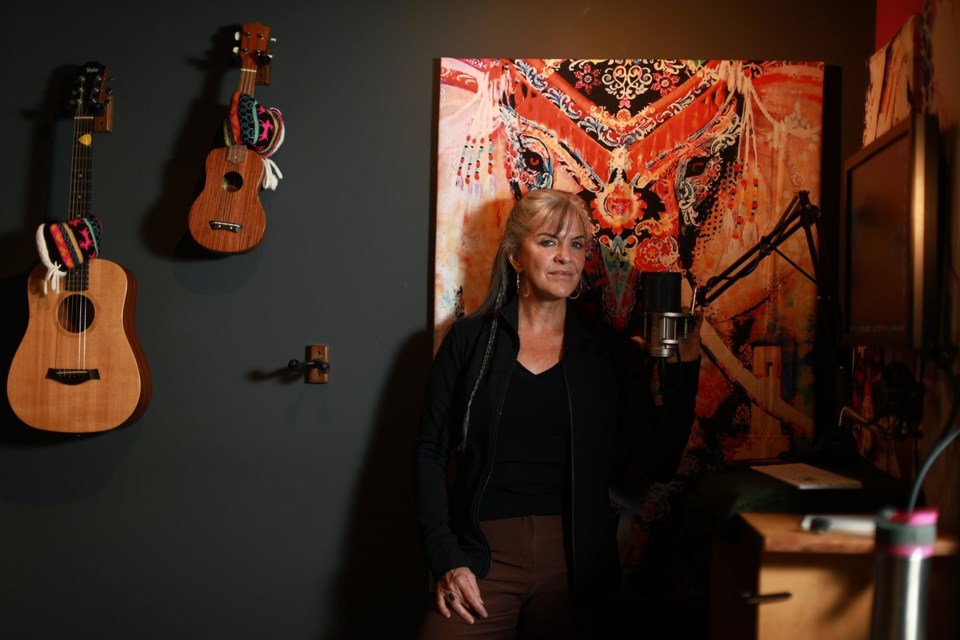A recent dispute over the use of a voice similar to Hollywood actor Scarlett Johansson by the maker of ChatGPT is another example of the complexities of generative artificial intelligence and the ethical debate around the technology.
OpenAI has said the voice of Sky — one of several available for its popular chatbot — is not an imitation of the actor and belongs to a different professional who used her natural speaking voice.
Nevertheless, similarities to Johansson were striking, and the Marvel star raised questions about the voice sounding "eerily similar" to hers after she declined an offer to lend her voice to the system.
The company paused the use of Sky earlier this week.
The high-profile case has brought the subject of AI voices to the fore, with several video game voice actors saying they are especially vulnerable to unauthorized AI.
One case involved a user-created mod to the video game "Cyberpunk 2077," which turned the main character into Adam Jensen, complete with voice performance.
The problem: Adam Jensen is the main character of a different video game series and the voice actor didn't lend his talent to the fan project, nor did he consent to its creation.
"It's a whole performance with my voice," says Elias Toufexis, who grew up in Montreal and now lives in Los Angeles. "I was like, you can't do this, whoever this is."
The creator of the mod agreed to take it down, he says.
Toufexis — also known for his voice work on video games, including "Starfield" and the "Assassin's Creed" and "Splinter Cell" series, as well as his roles in live-action shows such as "The Expanse" and "Star Trek: Discovery" — says artificial intelligence is cool and has a lot of possibilities.
However, while AI can be used to help art, it should not be used to create art, says Toufexis.
Ubisoft, publisher of the "Assassin's Creed" and "Splinter Cell" games, appears to agree.
Yves Jacquier is executive director of La Forge, a department within Ubisoft. Headquartered in Montreal, La Forge aims to prototype innovations from the latest academic research to improve the game-making process, its website says. Artificial intelligence falls under that mandate.
"It's there to assist the creator," Jacquier says. "The creator has to have the upper hand, has to have the vision, and AI is one tool to be able to deliver on that vision."
Jacquier says he isn't aware of AI applications at Ubisoft taking away work that would otherwise be done by a human.
"When we develop those solutions, we do that with the end user," he says, citing an in-house tool known as Ghostwriter as an example.
A 2023 announcement says Ghostwriter doesn't replace video game writers but helps them with one of their most laborious tasks: writing lines known as "barks." The tool generates samples that a human can select and polish.
It's essentially filler dialogue uttered by non-player characters and can be as simple as, "Get down!" or "Grenade!"
Toufexis says voicing video game barks is a job that's going away because of AI, meaning aspiring voice actors may have a tougher time breaking in.
Another major concern is fair treatment.
For voice actor Jennifer Hale, it comes down to three things: "Control of what happens with our voice. Consent to use our voice in the first place. And compensation for the use of our voice," says Hale, who was born in Happy Valley-Goose Bay, N.L., and now lives on Vancouver Island.
"This is my voice," says Hale, best known as Commander Shepard in the "Mass Effect" series.
"This is the expression of my soul. This is the expression of my decades of life experience. No one is allowed to use it without my permission."
Hale acknowledges AI is a tool that isn't inherently harmful. She says she's not against AI, but its misuse.
But cases like ChatGPT's sound-alike Johansson voice highlight a need for protection for actors, and perhaps especially voice actors.
An actor's contract is a main protection, says Linsay Rousseau, an actor based in Los Angeles who has a lengthy resumé that covers video games, film, performance capture and more.
She points to work done by the U.S.-based National Association of Voice Actors, which has made available a rider or contract addendum on AI that professionals can use when negotiating a job.
Rousseau says the use of AI voices could become more common with smaller video game studios, which may not necessarily know how to work with actors or have the money to pay them.
For big-budget projects, though, companies still want celebrities, she says.
"They still want their Jen Hales," she says.
There's a reason people like movie stars, Toufexis says, and it's because they want a connection to characters through the actors.
"There's not going to be an AI Meryl Streep. It's never going to happen."
This report by The Canadian Press was first published May 23, 2024.
Curtis Ng, The Canadian Press




